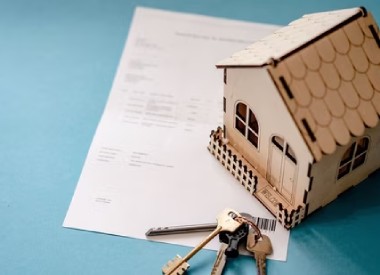When purchasing property in India, understanding the legal documentation is crucial for a smooth transaction. Two essential documents that often confuse buyers are the agreement for sale and the sale deed. While both are integral to property transactions, they serve different purposes and have distinct legal implications. Let's explore these differences to help you navigate your property purchase confidently.
What is an Agreement for Sale?
An agreement for sale is a preliminary contract between the buyer and seller that outlines the terms and conditions of the future property transaction. This sales agreement contract is essentially a promise to transfer property ownership at a later date, once certain conditions are met.
The agreement for sale typically includes:
- Details of both parties involved
- Property description and location
- Sale consideration and payment terms
- Possession date
- The rights and obligations of both parties
- Penalty clauses for breach of contract
This document creates a binding obligation between the buyer and seller but does not transfer property ownership. It's crucial to have proper property document verification done before signing this agreement to ensure there are no legal encumbrances or disputes associated with the property.
What is a Sale Deed?
A sale deed is the final and most important document in property transactions. This is the actual conveyance deed that transfers ownership rights from the seller to the buyer. Unlike the agreement for sale, the sale deed is a definitive document that must be registered under the Registration Act, 1908.
The sale deed includes:
- Complete details of the property
- Final sale price and payment confirmation
- Clear title transfer clause
- Signatures of both parties
- Witness signatures
- Registration details
Once the sale deed is executed and registered, the buyer becomes the legal owner of the property. This document serves as conclusive proof of ownership and is essential for any future transactions involving the property.
Key Differences You Must Know
Legal Status: The agreement for sale creates a right to obtain ownership, while the sale deed actually transfers ownership. The former is executory in nature, whereas the latter is executed.
Registration: While an agreement for sale doesn't necessarily require registration (though it's advisable if the value exceeds Rs. 100), a sale deed must be compulsorily registered with the sub-registrar's office to be legally valid.
Stamp Duty: The agreement for sale attracts minimal stamp duty, but the sale deed requires full stamp duty payment based on the property's value, which varies by state.
Transfer of Rights: No ownership rights are transferred through an agreement for sale. Complete ownership and possessory rights are transferred only through a registered sale deed.
Time Factor: The agreement for sale is signed first, often months before the actual transaction. The sale deed is executed later, typically after all payments are made and conditions are fulfilled.
Why Both Documents Matter
Many buyers wonder why both documents are necessary. The agreement for sale protects both parties during the interim period between initial commitment and final transaction. It ensures that the seller cannot sell the property to another party and that the buyer commits to completing the purchase.
The sale deed, on the other hand, provides legal protection and serves as irrefutable evidence of ownership. Without a registered sale deed, you cannot claim legal ownership, regardless of possession or payment made.
Professional Guidance is Essential
Given the complexity of property transactions and the legal implications involved, consulting lawyers near me or legal professionals specializing in property law is highly recommended. Professional legal assistance ensures:
- Thorough document verification
- Identification of potential legal issues
- Proper drafting of agreements
- Smooth registration process
- Protection of your interests
Acreok: Your Trusted Property Partner
When it comes to property transactions, having the right guidance makes all the difference. Acreok is a leading property consultancy that specializes in helping buyers and sellers navigate the complexities of real estate transactions in India. With expert knowledge of property laws and documentation processes, Acreok ensures your property journey is seamless and legally sound.
Whether you need assistance with property document verification, legal consultation, or complete transaction management, Acreok's team of professionals is here to help.
Contact Acreok:
- Phone: +919620077119
- Email: support@acreok.com
- Website: https://acreok.com/
- Address: 'C' block, 1st floor, Unity Building, J C Road, BANGALORE 560027
Frequently Asked Questions (FAQs)
1.Can I claim ownership with just an agreement for sale?
No, an agreement for sale does not transfer ownership. You need a registered sale deed to become the legal owner of the property. The agreement for sale only creates a contractual obligation.
2. Is registration mandatory for both documents?
Registration of a sale deed is mandatory under Indian law. While registration of an agreement for sale is not compulsory if the value is below Rs. 100, it's highly advisable to register it for legal protection.
3. What happens if the seller refuses to execute the sale deed after signing the agreement for sale?
If the seller breaches the agreement for sale, you can file a suit for specific performance in court, compelling the seller to execute the sale deed. This is why having a properly drafted sales agreement contract is crucial.
4. How much stamp duty is applicable on these documents?
The agreement for sale typically attracts nominal stamp duty (0.1% to 1% depending on the state). The sale deed requires full stamp duty, which ranges from 4% to 10% of the property value, varying by state.
5. Can I get a home loan with just an agreement for sale?
Most banks and financial institutions will not sanction a home loan based solely on an agreement for sale. They require a registered sale deed in the borrower's name to process and approve the loan.


.jpg)

.jpg)

Leave a Reply
Your email address will not be published. Required fields are marked*